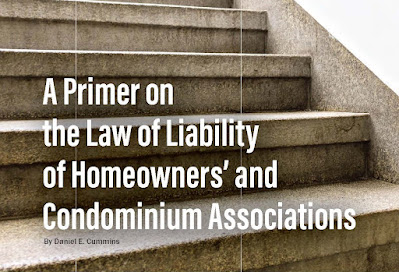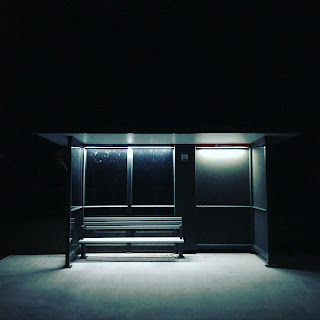In the case of
Sanchez v. Snowshoe Condo. Ass’n, Inc., No. 9276-Civil-2015 (C.P. Monroe Co. Sept. 19, 2019 Williamson, J.), the court granted summary judgment in favor of a Defendant in a slip and fall case where the Plaintiff failed to establish how the icy condition was created or how the Defendant could have had actual or constructive knowledge of the condition.
According to the Opinion, the Plaintiff lived at a property located within the Defendant’s condominium association.
At approximately 6:00 a.m. on a December morning, the Plaintiff left her home to take her dog for a walk. When she returned to her unit approximately 15 minutes later, the Plaintiff slipped and fell on an icy spot on a bottom step leading into her unit.
Judge Williamson cited to Pennsylvania law that confirmed that property owners were not required to keep the premises completely free of snow and ice at all times. Rather, under the hills and ridges doctrine, owners were not liable when there were generally slippery conditions and where the ice and/or snow had not yet accumulated into unreasonable ridges or elevations. Rather, the law only requires that a property owner act within a reasonable time, after notice, to remove snow and ice when it presents as a dangerous condition.
In this matter, both the Plaintiff and her daughter testified that they did not know when or how the ice had formed. The Plaintiff also admitted that she did not notice the ice the night before or even when she had left her home to begin to take a walk with her dogs. The court also noted that her fall occurred while it was still dark outside.
In the record before the court there were weather reports that showed that no precipitation had fallen on the date in question. The court found that, given the lack of precipitation, it was unclear how a Defendant landowner would have known about the alleged formation of any ice.
Judge Williamson stated that there was no other evidence to indicate that the icy condition had existed for such a long period of time that the Defendant knew about it or should have known about it. At most, it appeared that the condition may have existed for a few hours between the sunset and sunrise. The court held that this was not a reasonable time frame in which to expect a Defendant to locate and correct an allegedly icy condition.
Based upon the above, the court granted the Defendant’s Motion for Summary Judgment after finding that the Plaintiff had failed to establish a
prima facie case of negligent in terms of how the alleged icy condition occurred or how the Defendant could have known about it.
Anyone wishing to review a copy of this case may click this
LINK.
Source: “Digest of Recent Opinions.” The Pennsylvania Law Weekly (Oct. 22, 2019).















